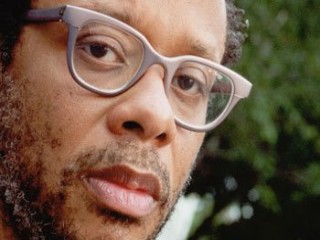
Don Byron biography
Date of birth : 1958-11-08
Date of death : -
Birthplace : New York City, New York, U.S.
Nationality : American
Category : Arts and Entertainment
Last modified : 2011-10-24
Credited as : clarinetist, composer, avant-garde jazz, klezmer
0 votes so far
Don Byron was born on November 8, 1958, to parents who both appreciated and played music. His father, a bassist in a calypso band, and his mother, who played piano, exposed him to classical, salsa, and jazz music as a child. He began playing clarinet and composing professionally in 1985.
By the time Byron graduated from the New England Conservatory of Music in 1984, he was the leader of The Klezmer Conservatory Band, which played high-energy Eastern European Jewish music. He left that band in 1987 to be a sideman for some of the most cutting-edge jazz musicians of the time, including bassist Reggie Workman, baritone saxophonist Hamiet Bluiett, and guitarist Bill Frisell.
Don Byron's 1991 debut album, Tuskegee Experiments, takes its title from a series of ethically questionable medical and psychological experiments the U.S. Public Health Service performed on African-American men in 1932. Featuring both Frisell and Workman, the album features versions of Robert Schumann's "Auf Einer Burg" and Duke Ellington's "Mainstem" among brooding originals and poetry. The Penguin Guide to Jazz praised the album, considering it "masterful, one of the most exciting debuts in more than a decade."
His next album, Plays the Music of Mickey Katz, was a surprise to those who were unaware of Byron's previous klezmer affiliations. He was making a statement about American popular culture by taking the music of a famous Yiddish performer of the 1950s from which the Jewish community distanced itself.
Prior to the release of his 1995 album Music for Six Musicians, Don Byron discussed with New York Times Magazine the stylistic divide in jazz music between the mainstream and more avant-garde elements: "Me and most of the cats I hang with, we're too left-wing to be around {mainstream jazz institution Jazz At} Lincoln Center. They should be presenting the freshest, baddest stuff. I don't even exist in jazz the way these people perceive it to be.... I've gotten to the point where I can't care what other jazz cats think."
Music for Six Musicians celebrates the Afro-Cuban music of Byron's childhood neighborhood in the Bronx. The Latin jazz elements are another aspect of his usical personality, and he is able to infuse them into his music without sounding trite or dilettantish. Byron continued to infuse his music with his radical politics; the album opens with poet Sadiq's "White History Month," which contains lines like "You think it fair if there was a white history month? ... I picture a kind of underground railroad, Delivering us in the dead of night from the inner city to the suburbs, Yea, like right into the hands of the Klan?"
In 1996 Don Byron was part of the cast of Robert Altman's film Kansas City, along with many other leading artists on the cutting edge of jazz. The soundtrack to the film, set in the early-to-mid 1930s was not trying to recreate the classic jazz of the period, but capture and convey it's essence in a contemporary manner. According to music director Hal Willner, "If you listen to records like 'Lafayette' {by Count Basie} or 'Prince of Wails', there was as much energy as any punk-rock I've ever heard." Byron's featured solo is Eddie Durham's "Pagin' the Blues,"
Don Byron's latest album Bug Music mixes compositions of Cotton Club-era Duke Ellington, an unquestionable classic period of an undisputed jazz master, with compositions by composers John Kirby and Raymond Scott, who were discredited by music critics in their time despite the fact that both men's music was technically complex and commercially popular. Byron explained in Music and The Arts, "Even in Gunther Schuller's The Swing Era, {he says} it's not really good music.... When you look at the era those cats came up in, that was the stuff that was turning everybody out."
The title "Bug Music" was inspired by an episode of The Flintstones which featured a parody of The Beatles before their music became acceptable by the standards of mainstream music critics. In the hands of Don Byron's ensemble, the music of Kirby, Scott, and Ellington commingle seamlessly, despite the subjective boundaries placed upon it at the time of its release.
By following his own inspiration and avoiding the subjective traps of music critics, Don Byron has become one of the most interesting voices in music of the nineties.
Byron's selective works:
Tuskegee Experiments, Elektra/Nonesuch, 1992.
Plays the Music of Mickey Katz, Elektra/Nonesuch, 1993.
Music for Six Musicians, Elektra/Nonesuch, 1995.
No Vibe Zone, Knitting Factory Works, 1996.
Bug Music, Elektra/Nonesuch, 1997.



















